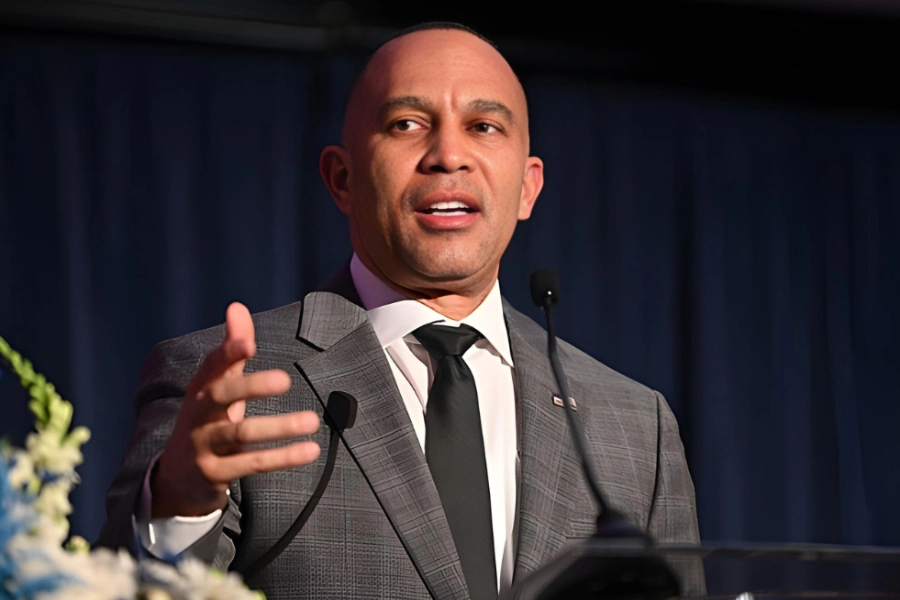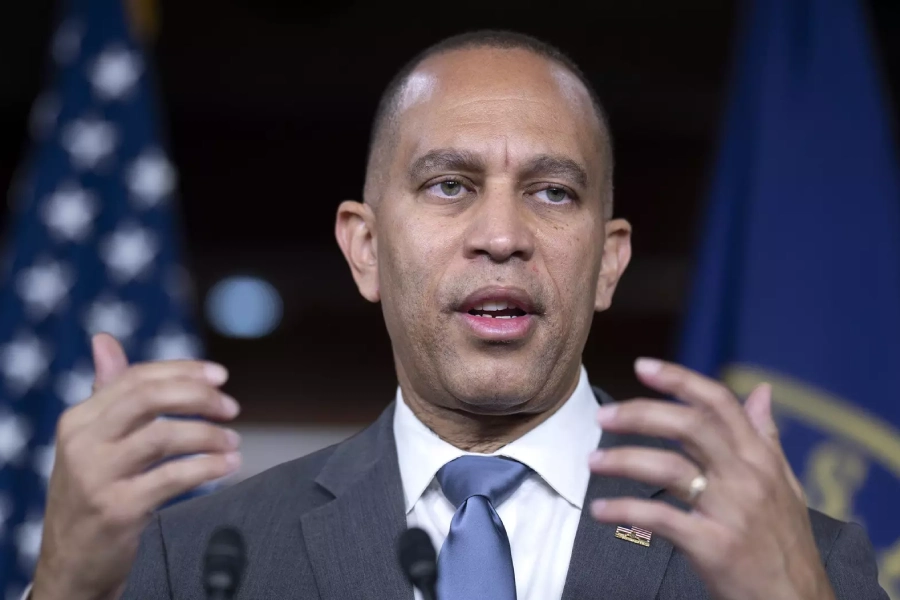Christopher Moynihan, a New York resident involved in the January 6, 2021, U.S. Capitol riot, has recently been arrested for allegedly threatening House Democratic Leader Hakeem Jeffries.
This case has captured national attention due to the Trump pardon in 2025 and the legal and constitutional questions it raises.
Understanding Moynihan’s journey from Capitol rioter to a pardoned individual facing new felony charges provides critical insights into U.S. federal and state law, presidential clemency limits, and public safety regulations in Washington D.C., USA.

Who Is Christopher Moynihan? Key Facts
Christopher Moynihan, 34, was convicted for his participation in the Capitol riot, including obstructing an official proceeding, disorderly conduct, and unlawful entry.
He was sentenced to 21 months in federal prison but was released early due to a Trump presidential pardon in January 2025.
Despite this pardon, Moynihan’s alleged threats against Congressman Hakeem Jeffries led to new criminal charges under New York law.
The Trump Pardon 2025: Legal Limits and Implications
Presidential pardons, authorized by Article II, Section 2 of the U.S. Constitution, can absolve individuals of federal crimes.
However:
-
They do not apply to state-level offenses.
-
They do not protect against future crimes.
Moynihan’s recent arrest underscores the legal boundary between federal clemency and ongoing accountability, raising important questions about law enforcement and oversight in Washington D.C.
Timeline of Christopher Moynihan’s Legal Proceedings
| Event | Date | Outcome |
|---|---|---|
| Capitol Riot Participation | Jan 6, 2021 | Convicted of obstruction and disorderly conduct |
| Federal Sentencing | Feb 2023 | 21 months in prison |
| Early Release via Trump Pardon | Jan 20, 2025 | Pardoned and released |
| Arrest for Terroristic Threat | Oct 2025 | Charged in New York; bail $10,000 |
Understanding Terroristic Threats: New York Legal Context
A terroristic threat under New York Penal Law §490.20 occurs when an individual communicates intent to commit serious violence against a person or institution.
-
Classified as a Class D felony
-
Potential penalty: up to 7 years in prison
Moynihan’s alleged texts threatening Hakeem Jeffries fall squarely within this legal definition, highlighting the seriousness of post-pardon criminal liability.
Judicial Oversight and State-Federal Collaboration in Washington D.C.
Although Moynihan’s charges are state-based, federal agencies coordinate closely with local authorities in Washington D.C. and New York.
Key legal questions include:
-
How to balance presidential clemency with public safety?
-
What post-pardon monitoring mechanisms can prevent recidivism?
-
How can Washington D.C. courts protect elected officials while preserving constitutional rights?
Political and Cultural Dimensions of the Christopher Moynihan Case
While primarily legal, the case also has socio-political and cultural significance:
-
Symbolizes ongoing debates about Trump-era pardons and accountability
-
Highlights vulnerabilities in the Capitol’s security architecture
-
Demonstrates cultural tensions in the interpretation of civic duty and lawful protest
Architectural Significance: The Capitol as a Legal Landmark
The Capitol building is not just political; it’s a symbol of law, governance, and democracy.
Moynihan’s intrusion in 2021 shows how physical spaces of governance are legally protected yet vulnerable, emphasizing the need for enhanced security protocols in Washington D.C.
Legal and Constitutional Analysis: Implications for Future Pardons
-
Limits of Clemency: Presidential pardons do not absolve state-level or future crimes.
-
Public Safety: Pardoned individuals committing new offenses may face heightened scrutiny and federal coordination.
-
Precedent: Moynihan’s case could influence how courts and Congress interpret pardons in politically sensitive cases.
Conclusion
The Christopher Moynihan legal case highlights critical intersections of law, governance, and public safety in Washington D.C.
-
Clarifies limits of presidential pardons
-
Reinforces state accountability for criminal behavior
-
Provides precedent for handling politically sensitive threats in the future
For legal scholars, policymakers, and public safety officials, this case remains a defining example of balancing clemency with accountability in the United States.
FAQ
What crimes was Christopher Moynihan convicted of before the pardon?
Obstruction of official proceedings, disorderly conduct, and unlawful entry during the Capitol riot on Jan 6, 2021.
Does Trump’s pardon protect him from new charges?
No. Pardons cover only past federal convictions, not state-level crimes or new acts of violence.
What penalties can Moynihan face for terroristic threats?
Under New York Penal Law §490.20, he faces up to 7 years in prison.
Why is this case significant for Washington D.C.?
It illustrates federal-state legal interplay, the limits of executive clemency, and protections for elected officials.
How does this case affect the interpretation of presidential pardons?
It shows that pardons cannot shield individuals from future criminal acts, reinforcing judicial accountability.

